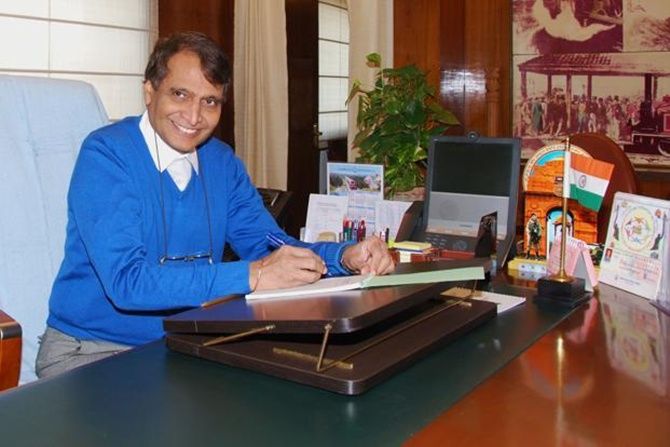Despite these successes, Railway Minister Prabhu has had his share of criticism.

Indian Railways was in a shambles when Suresh Prabhu took charge as minister in November 2014. Cut to 2016 and the narrative has shifted to high-speed trains, Wi-Fi broadband services at stations and use of social media to improve passenger amenities.
The ministry has managed to place Rs 40,000 crore (Rs 400 billion) of contracts for the much-awaited diesel and electric locomotive factories, secure Rs 5 lakh crore long-term funding from Life Insurance Corporation and begin work on a Rs 98,000-crore (Rs 980 billion) first bullet train project with Japanese loans.
"A major achievement Prabhu will be known for in the first two years is putting back on rails many of the crucial but incomplete tasks that were pending for a long time. Work has gained momentum on locomotive factories and the Dedicated Freight Corridor project," said Vishwas Udgirkar, senior director, Deloitte. Through the locomotive factories, the government has cleared the pitch for the first foreign direct investment in the sector.
Despite these successes, Prabhu has had his share of criticism.
Last year, the Prime Minister's Office had asked the ministry to speed up work on key projects and the finance ministry cut down the railways' Gross Budgetary Support of Rs 40,000 crore by Rs 10,000 crore.
Experts say the current financial year would be a defining year for Prabhu.
"Initiatives like High Speed Rail help only in changing of perceptions. In the long term, it is important for the railways to improve the basic financial viability of the system," Udgirkar said.











